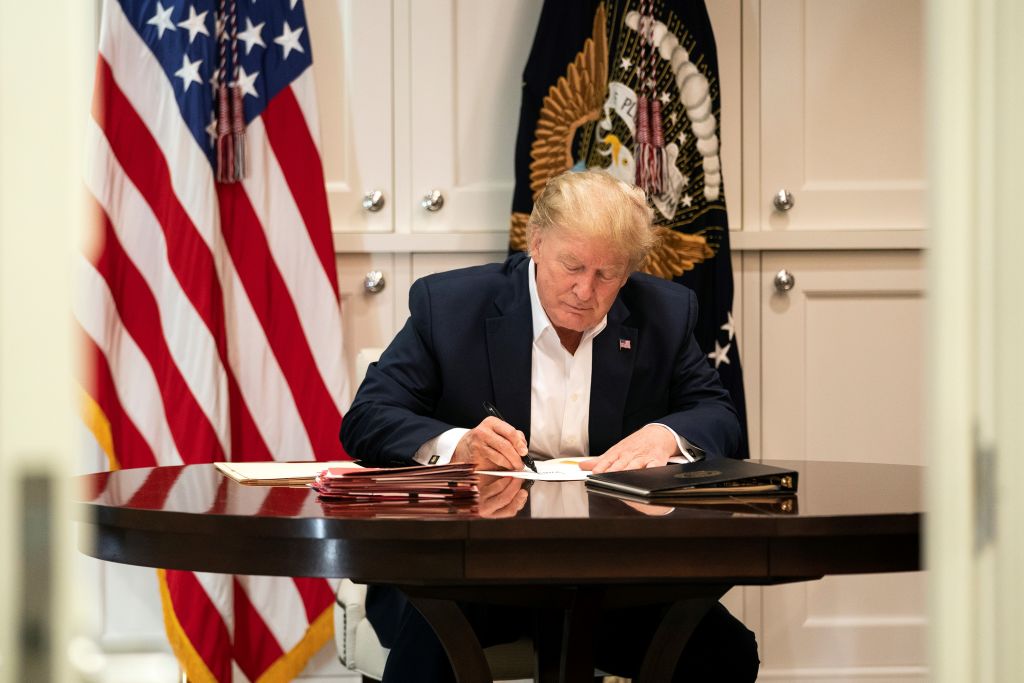Trump's case of COVID-19 was reportedly more serious than the White House admitted


A free daily email with the biggest news stories of the day – and the best features from TheWeek.com
You are now subscribed
Your newsletter sign-up was successful
Former President Donald Trump's COVID-19 fight was more dire than anyone publicly revealed, four people familiar with his condition tell The New York Times.
Amid Trump's coronavirus fight in early October, the president and his top physician insisted his condition was never that severe. But people close to the president say Trump's symptoms were far more serious than he let on, and even had some officials convinced the president would end up on a ventilator, they tell the Times.
Several hours after Trump revealed his positive COVID-19 test, he was helicoptered to Walter Reed Medical Center in what the White House characterized as a cautionary move. But before leaving , Trump was having trouble breathing, and received oxygen twice, Trump's doctor later acknowledged. Still, Trump reportedly resisted hospitalization, and only agreed to go because he was told he could walk to the helicopter if he left that evening. If he'd stayed at the White House, aides reportedly warned Trump that Secret Service may have to carry him out later.
The Week
Escape your echo chamber. Get the facts behind the news, plus analysis from multiple perspectives.

Sign up for The Week's Free Newsletters
From our morning news briefing to a weekly Good News Newsletter, get the best of The Week delivered directly to your inbox.
From our morning news briefing to a weekly Good News Newsletter, get the best of The Week delivered directly to your inbox.
When Trump did get to the hospital, he was found to have lung infiltrates, which appear when the lungs are inflamed and contain substances such as fluid or bacteria, reports the Times. "Trump's blood oxygen level alone was cause for extreme concern, dipping into the 80s," the Times continues. COVID-19 is considered severe when the level falls into the 90s. Those symptoms match more closely with the remdesivir treatment Trump was getting; The experimental drug cocktail has been reserved only for severe cases of COVID-19.
A free daily email with the biggest news stories of the day – and the best features from TheWeek.com
Kathryn is a graduate of Syracuse University, with degrees in magazine journalism and information technology, along with hours to earn another degree after working at SU's independent paper The Daily Orange. She's currently recovering from a horse addiction while living in New York City, and likes to share her extremely dry sense of humor on Twitter.
